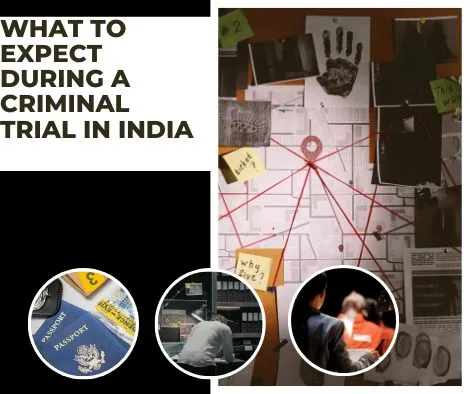In this article, we explain the benefits of Mutual Divorce and the Eligibility Criteria in India. In Indian society, where marriage is traditionally considered sacred, navigating the dissolution of a union can be emotionally and legally complex. However, for couples facing irreconcilable differences, mutual divorce in India offers a promising path towards a dignified and swift separation. This article delves into the benefits and eligibility criteria for mutual divorce, empowering you with the knowledge needed to make informed decisions.
Mutual Divorce Benefits and Eligibility Criteria in India
Opting for mutual consent divorce comes with a multitude of advantages compared to contested paths:
- Faster Resolution: Averaging a timeframe of 6-18 months, mutual divorce bypasses lengthy court proceedings and adversarial arguments. This translates to quicker closure and the ability to move on with your life sooner.
- Reduced Emotional Turmoil: The collaborative nature of mutual divorce fosters a respectful and amicable environment, minimizing bitterness and emotional strain for both parties.
- Financial Savings: Contested divorces incur significant legal fees and court costs. Mutual divorce, with its streamlined process, leads to substantial financial savings.
- Control over the Outcome: Couples can mutually determine terms regarding alimony, child custody, and property division, leading to a fair and amicable resolution.
- Preserving Family Ties: Maintaining a cordial relationship post-divorce is often easier when spouses choose the mutual path, opening doors for positive co-parenting and continued family interactions.
Navigating the Eligibility Maze – Key Requirements for Mutual Divorce in India
To qualify for a mutual divorce in India, specific criteria must be met:
- Mutual Consent: Both spouses must willingly and voluntarily agree to the dissolution of the marriage. Any coercion or undue influence renders the petition invalid.
- Separation Period: Couples must have been living separate and apart for at least one year preceding the filing of the petition. Certain exceptions exist for marriages exceeding three years, under specific circumstances.
- Grounds for Divorce: While mutual consent forms the primary basis, the petition must also cite grounds for divorce recognized by the applicable marriage law under which the couple is registered (e.g., Hindu Marriage Act, Special Marriage Act).
- Child Custody Agreement: If children are involved, a mutually agreed-upon child custody arrangement must be presented to the court, outlining living arrangements, visitation rights, and educational provisions.
- Settlement Agreement: Comprehensive details regarding alimony, maintenance, and property division must be documented in a written agreement acceptable to both parties.
Seeking Expert Guidance – The Role of a Lawyer in Mutual Divorce
While the mutual divorce process is generally simpler than contested proceedings, navigating legal formalities and drafting crucial agreements can be complex. Consulting a qualified and experienced divorce lawyer offers several benefits:
- Ensuring Eligibility and Compliance: Your lawyer will assess your situation and confirm your eligibility for mutual divorce, guiding you through the necessary procedures and documentation.
- Drafting Agreements: Lawyers can skillfully draft legally binding agreements on alimony, child custody, and property division, safeguarding your interests and minimizing future disputes.
- Representing You in Court: In certain situations, your lawyer can represent you in court hearings, ensuring a smooth and professional presentation of your case.
Read :- Benefits of Divorce Lawyer
FAQ (FREQUENTLY ASKED QUESTIONS)
- Q: What is mutual divorce in India?
A: Mutual divorce in India is a legal process where both spouses agree to end their marriage amicably, and they jointly petition the court for divorce. - Q: What are the benefits of opting for a mutual divorce?
A: Benefits include a faster and less adversarial process, reduced emotional stress, and the ability to negotiate terms like alimony and child custody together. - Q: Can anyone file for a mutual divorce in India?
A: Mutual divorce can be filed by spouses who have been married for at least one year and mutually agree to end the marriage without any coercion or undue influence. - Q: What are the eligibility criteria for mutual divorce in India?
A: The spouses must have lived separately for a specific period, usually one year, and must mutually agree that the marriage has irretrievably broken down. - Q: Is there a waiting period for mutual divorce in India?
A: Yes, there is usually a mandatory waiting period of six months after filing the petition for mutual divorce before the court grants the decree. - Q: Can a couple with children opt for mutual divorce?
A: Yes, couples with children can opt for mutual divorce. They need to decide on matters like child custody and support as part of the divorce agreement. - Q: What documents are required for filing a mutual divorce petition?
A: Documents include proof of marriage, address proof, income statements, and details about assets, along with the joint divorce petition. - Q: Do both spouses need to be present in court during mutual divorce proceedings?
A: In most cases, both spouses are required to be present in court during mutual divorce proceedings, especially during the filing and the final hearing. - Q: How is property divided in a mutual divorce in India?
A: The division of property is typically decided mutually by the spouses, and the court approves the settlement presented by both parties. - Q: What is the role of the mediator in mutual divorce cases?
A: Mediators can assist spouses in reaching agreements on various issues, facilitating communication and reducing the need for litigation. - Q: Can one spouse withdraw consent for mutual divorce after filing?
A: Yes, either spouse can withdraw consent before the final decree is granted. If one party withdraws, the divorce petition becomes void. - Q: How is alimony decided in mutual divorce cases?
A: Spouses can negotiate and decide on alimony terms mutually. If an agreement is not reached, the court may intervene to determine a fair amount. - Q: Is counseling mandatory before filing for mutual divorce?
A: In some cases, the court may suggest counseling before granting a divorce. However, this requirement varies, and not all cases mandate counseling. - Q: Can mutual divorce be contested later?
A: Once the court grants the decree, it is legally binding. However, issues related to alimony or child custody may be revisited in the future. - Q: What happens if the spouses cannot agree on all terms in a mutual divorce?
A: If disagreements arise, the divorce may become contested, and the court will decide on unresolved issues after hearing both parties. - Q: Are there any specific grounds for mutual divorce in India?
A: The only ground for mutual divorce is the irretrievable breakdown of the marriage, where both spouses agree that continuing the marriage is not viable. - Q: Can a mutual divorce be granted if one spouse is abroad?
A: Yes, a spouse residing abroad can participate in the mutual divorce process through video conferencing or by appointing a representative in India. - Q: How long does the entire mutual divorce process take in India?
A: The timeline can vary, but the mandatory waiting period of six months ensures that the process generally takes at least that long. - Q: Can a mutual divorce be filed without a lawyer?
A: While it is possible to file a mutual divorce without a lawyer, legal assistance is advisable to ensure that all legal requirements are met. - Q: Can a spouse remarry immediately after getting a mutual divorce decree?
A: Yes, once the court grants the final decree of mutual divorce, both spouses are legally free to remarry immediately. - Q: Is there a difference between mutual divorce and uncontested divorce?
A: The terms are often used interchangeably, but mutual divorce emphasizes the agreement between spouses, while uncontested divorce simply means there are no disputes. - Q: Can mutual divorce be filed if the spouses are not living separately?
A: Living separately for a specified period is a common requirement. However, exceptional circumstances may be considered by the court. - Q: Can mutual divorce be filed if one spouse is not willing to cooperate?
A: Both spouses must willingly agree to the divorce for it to be considered mutual. If one party is not cooperative, the divorce may become contested. - Q: Can a mutual divorce decree be challenged in a higher court?
A: In exceptional circumstances, a mutual divorce decree may be challenged in a higher court, but the grounds for such challenges are limited. - Q: Are there any financial implications for filing a mutual divorce?
A: The financial implications may include court fees, lawyer fees, and the financial terms agreed upon in the divorce settlement. - Q: Can a spouse change their mind after filing for mutual divorce?
A: Yes, a spouse can change their mind and withdraw consent before the court grants the final decree. Open communication is crucial to avoid misunderstandings. - Q: How is child custody decided in a mutual divorce?
A: Parents can mutually decide on child custody arrangements. If an agreement is not reached, the court will decide based on the child’s best interests. - Q: Is there a difference in the mutual divorce process for Hindus and non-Hindus?
A: While the basic process is similar, there may be variations in documentation and certain aspects based on personal laws applicable to different religions. - Q: Can a mutual divorce be filed if the spouses are living in different states?
A: Yes, a mutual divorce can be filed even if the spouses reside in different states. The legal process allows for such situations. - Q: Can a mutual divorce be filed if the marriage took place outside India?
A: Yes, a mutual divorce can be filed in India even if the marriage took place outside the country, as long as one of the spouses is an Indian citizen or a resident.
Sources:-
















